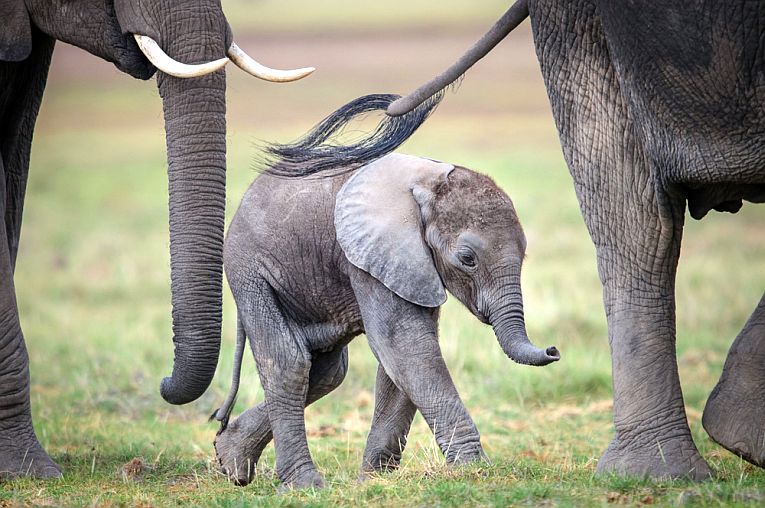circus-likenotion that you can ship them off to one of the most hazardous places on earth for elephants is nonsense. A purely immoral money-making exercise!Elephant image; Credit: © Shutterstock
In December, the Zimbabwe Parks and Wildlife Management Authority (ZPWMA) captured dozens of wild baby elephants, Loxodonta africana, from their herds for export! Between 2.5 and 5 years old, these youngsters have been sent under high security to Maputo (Mozambique) for transit to China by freighter. In all 62 elephants are being sent to France, the UAE and China, with CITES allowing the trade, according to Zimbabwean sources. The reasoning behind this dispatching of Red Riding Hood to the wolves is curious. Elephant, rhino and even lion are used by the Chinese for weird medical purposes as we have reported far too often. Why would an African country concerned with conserving the elephant population be selling them to zoos?
An education programme to inform and entertain the Chinese on how unique the whole elephant is, compared to just a lump of ivory would be one of the “excuses” you can imagine the nation thinking up. If Zimbabwe has been fed such propaganda, perhaps it should send a collection of lecturers in English to inform zoos on the wild elephant needs of their new charges and train Chinese keepers to explain African ecology to the population. If this is simply commercial, at up to $60,000 per animal, then we have one of the biggest crimes against nature going, comparable to a human genocide.
Geoffreys Matipano is the Conservation Director at ZPWMA. He claims his Hwange Park has 43,000 animals in a park built to contain 15,000. This is a unique example in Africa, where lack of poaching and wonderful care has actually given us a surplus of elephants. We all know how elephant can trouble farmers looking for food and that there can be overpopulation, as where drought has reduced waterholes and the herds have been moved to areas with more rainfall where they can survive. But we have never heard of any herds escaping the terrible poaching and building in numbers over the last few years!
The collapse of tourism in Zimbabwe has many reasons, but to affect the elephant attraction in this way is odd. While South Africa has to use the army and large numbers of rangers to try and reduce poaching from Mozambique, neighbouring Zimbabwe is actually sending elephants there. At the other end of the deal, China often receives tiger parts from Thailand, as we related the other day. The zoos there have no animal welfare regulations according to the scientifically-respected International Fund for Animal Welfare (IFAW) and its Asian Director, Jeff He. He states that, these animals have been taken from the wild, which sends a very wrong signal to the public. The wild is where these elephants truly belong.
He was commenting in a Guardian article on the subject.
Apart from our reported elephant wars
in the great Kruger National Park (RSA), the recent history of Central Africa is rife with violent and traumatic attacks on both elephant and human (and of course the endangered rhinos too) This was a report from 2012 on one such attack. I think a response much bigger than the petition (that is gathering force) needs to be applied at a critical point.










